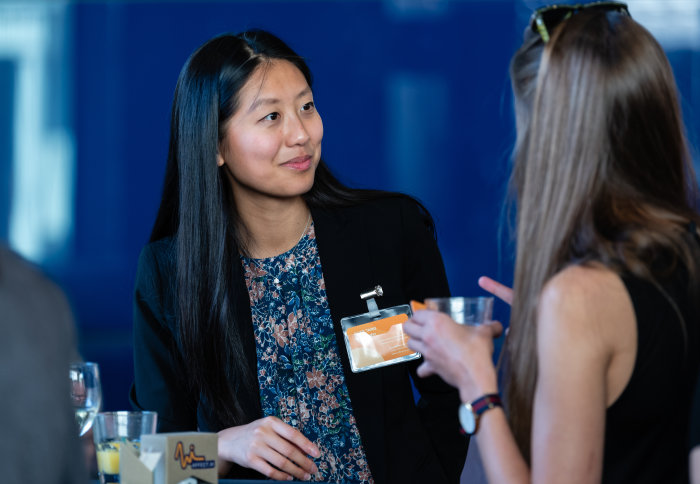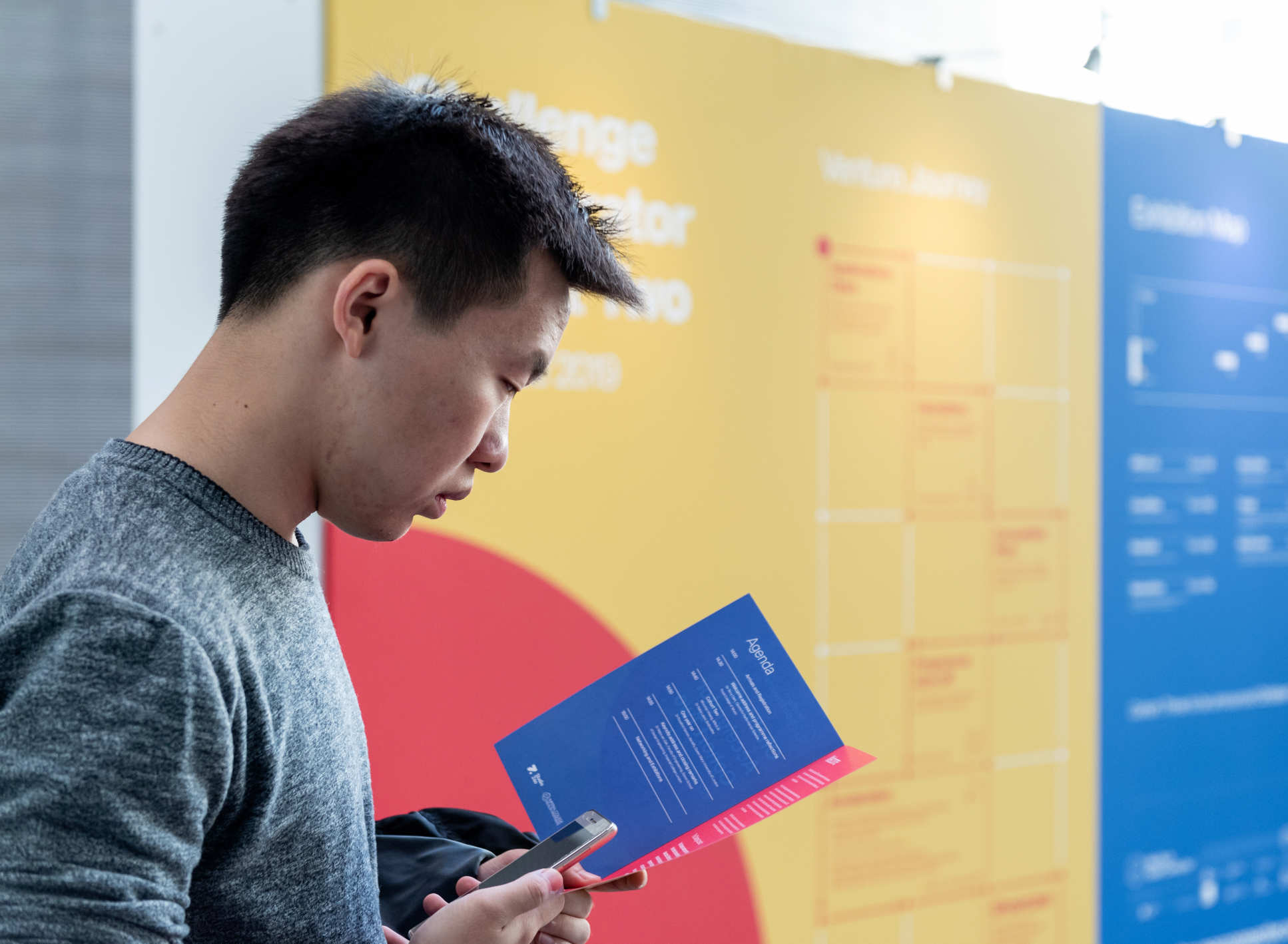Imperial students showcase tech-led solutions to mental health challenges

The second cohort of teams from the MedTech SuperConnector presented their solutions at a recent showcase event.
The MedTech SuperConnector is an entrepreneurial training programme for Early Career Researchers to help them translate their discoveries into new diagnostic tools, medical devices and digital healthcare solutions. It combines the expertise of eight world-leading diverse institutions to work together to develop best practice to support academic ventures through funding, training and access to industry partners to help fast track the translation of their research discoveries.
This year’s programme is a six-month challenge accelerator, where the best minds from across institutions came together at a Hackathon to find solutions for mental health problems. It was open to postdocs, PhD and Master’s students from all academic backgrounds, with a passion for the programme’s challenge of mental health, wellbeing and happiness.
Find out more about the Imperial participants:
Personalised depression monitoring
Affect.AI is audio-based personalised monitoring for depression. Final year medical student Woochan Hwang and Dr Alice Tang, now a junior doctor, have created a machine learning tool that tracks voice changes, which could offer a robust way to monitor changes in mood.

Affect.AI will use machine learning combined with formal assessments by a clinician to determine how the changing characteristics of an individual’s voice can track changes in that person’s mood over time. The tool is intended to allow clinicians and patients to use voice recordings made between appointments to monitor mood and better evaluate their treatment.
Hosted in collaboration with the Royal College of Art, they have been working with Imperial College Health Partners and the Royal College of Psychiatrists Affect.AI to start clinical trials this winter.
Tackling elderly loneliness
Imperial Bioengineering graduate Noyan Songur and PhD candidate Momen Kamal Tageldeen are working to tackle the problem of elderly loneliness. Their project Retroville is a TV-based social platform that provides lonely elderly people with purposeful activities to incentivise them to lead a healthier lifestyle and build new bonds with their peers.

The platform will have on-demand workouts, intellectually stimulating games and health-related tips that the user can engage with individually, or with their friends. The team aim for Retroville to become the 24/7 go-to companion for elderly living alone to feel supported, socially included and purposeful in life.
Personalised wellbeing and mindfulness coach
BrainBot is a virtual personal trainer for your mind, powered by artificial intelligence. It has an emotive face and can talk to the user to provide interactive coaching to improve wellbeing and mindfulness.
It will suggest

different tailored activities and exercises for the user and can be accessed anywhere and anytime on a mobile device. Using natural speech and human-like facial expressions makes the conversations more relatable, engaging and fun.
BrainBot was created by postdoctoral researcher Dr Maitreyee Wairagkar and Maria Raposo de Lima, a Master’s student, both from the Department of Mechanical Engineering.
Maximising cancer patients’ wellbeing
CrushBox are creating an online platform for patients with cancer to have access to discounted products and services to help maximise their emotional health, wellbeing and happiness.
The aim of the project is to give patients easy access to tools for better  coping strategies, products and services to enhance their feeling of attractiveness (which can be negatively affected whilst undergoing treatment).
coping strategies, products and services to enhance their feeling of attractiveness (which can be negatively affected whilst undergoing treatment).
CrushBox is led by Dr Anisha Ramessur, currently doing a PhD in the Department of Surgery and Cancer.
Improving workplace productivity
Happy Hub is improving workplace productivity for large organisations through effective stress management. The team provide a suite of evidence-based stress management resources, including tailored consulting services to increase knowledge and awareness of stress, easy access to a stress management toolkit and tools to measure workforce stress.
The team are made up of Alessandro Pio Greco, a Department of Life Sciences Master’s student and Dr Sandra Jumbe, a health psychologist from Queen Mary University of London, where the team are hosted.

Monitoring wellbeing at work
Kaktus-ai is a data-driven platform that monitors, predicts and improves mental health and wellbeing in the workplace. The digital platform is for HR departments, line managers and employees, providing businesses with evidence-based recommendations to transform both individual and workplace wellbeing.
They use artificial intelligence and data science to analyse data distributed across workplace communication challenges to recognise indicates of stress and other mental illnesses, and can then offer evidence-based recommendations.
The team are made up of PhD students Tarik Atuncu and Ahmed Shamso, and Dr Mohamed Mohamed, a recent Medicine graduate.
Article text (excluding photos or graphics) © Imperial College London.
Photos and graphics subject to third party copyright used with permission or © Imperial College London.
Reporter
Joanna Wilson
Communications Division